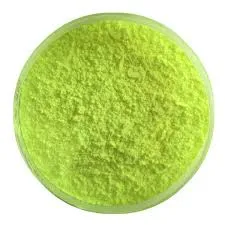Cooling Tower Water Chemicals A Comprehensive Guide
Cooling towers are essential components in various industrial processes, HVAC systems, and power plants, serving the critical function of dissipating heat. However, their operational efficiency heavily relies on the quality of the water circulating through them. Water has a tendency to accumulate impurities, leading to various issues that can hinder functionality, promote corrosion, and reduce overall efficiency. To combat these challenges, a range of chemicals is utilized in cooling tower water treatment. This article delves into the types of chemicals used, their purposes, and best practices for maintaining optimal cooling tower performance.
1. Water Treatment Chemicals
The primary role of these chemicals is to ensure the cooling water remains clean, efficient, and safe for the system. Below are the key categories and their respective functions
- Biocide Biocides are substances that kill or inhibit the growth of microorganisms, such as algae, bacteria, and fungi. These microbes can cause biofilm formation, which reduces heat transfer efficiency and can lead to corrosion. Common biocides include chlorine, bromine, and non-oxidizing agents like isothiazolinones.
- Corrosion Inhibitors Corrosion is a significant hazard in cooling systems, as it can lead to leaks and equipment failures. Corrosion inhibitors are chemicals that form a protective layer on metal surfaces, thus preventing corrosive reactions. Common inhibitors include phosphate, molybdate, and nitrites, which work to neutralize corrosive agents in the water.
- Scaling Inhibitors Scaling occurs when minerals in the water precipitate and form deposits on heat exchange surfaces, reducing heat transfer efficiency. Anti-scaling chemicals, such as polyacrylate, phosphonates, and citric acid, help to prevent the formation of these deposits, ensuring smooth operation.
- pH Adjusters The pH level of cooling water plays a crucial role in its chemistry. Chemical agents like sodium hydroxide or sulfuric acid can be used to adjust pH levels. Maintaining a neutral pH range (between 6.5 and 8.5) is essential for optimal performance and to minimize corrosion.
2. Importance of Proper Dosage
The effectiveness of cooling tower water chemicals largely depends on the appropriate dosage. Overdosing can lead to chemical imbalances and environmental concerns, whereas underdosing may result in inadequate protection against scaling, corrosion, and microbiological growth. It is vital to monitor water quality closely using regular testing to ensure that chemical concentrations remain within recommended boundaries.
cooling tower water chemicals

3. Environmental Considerations
The use of water treatment chemicals also raises environmental concerns. Certain biocides and corrosion inhibitors can be hazardous if discharged into the environment untreated. Therefore, implementing a well-designed water treatment plan that considers environmental regulations is essential. Recycling cooling tower water and using biodegradable chemicals can significantly reduce the ecological footprint.
4. Maintenance Practices
Regular maintenance of the cooling tower itself is crucial for the effective functioning of water treatment chemicals. This includes
- Routine Cleaning Regular cleaning schedules help prevent the buildup of scale and biological fouling. Routine inspections should check for any signs of corrosion or scaling.
- Water Quality Monitoring Implement a water testing program to analyze parameters such as hardness, alkalinity, pH, and microbiological activity. This data will guide the optimal use of chemicals.
- System Adjustments If significant changes in water chemistry are noticed, it may necessitate adjustments in chemical dosing or the introduction of additional treatment methods.
5. Conclusion
In conclusion, the effective management of cooling tower water through the application of treatment chemicals is vital for ensuring system efficiency, longevity, and environmental protection. By understanding the roles of biocides, corrosion inhibitors, scaling inhibitors, and pH adjusters, facility managers can develop a comprehensive water treatment program that addresses unique system challenges. Regular maintenance and monitoring, alongside a strong emphasis on environmental stewardship, will not only prolong the life of cooling towers but also contribute to sustainable operational practices. As industries continue to adopt more efficient cooling technologies, the role of proper water chemistry will remain pivotal in shaping their operational success.

